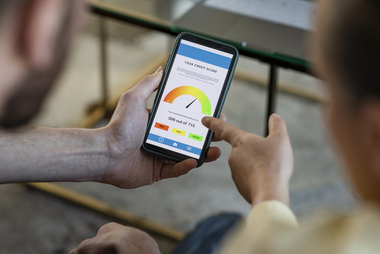Posted in Triplett & Carothers on January 6, 2024
Most mortgage lenders reserve their lowest rates for borrowers with FICO credit scores of 800 or higher. But what if your score is significantly lower? What are some reasons explaining why you are stuck with a FICO score of 620, 660 or 680? The answers can be found in your credit reports.
You have three credit reports, one each maintained by the national credit bureaus of Experian, Equifax and TransUnion. These reports list your personal and financial information. And the information included in them is what makes up your three-digit credit score.
Your credit reports will start with your personal information, listing your full name, current and past addresses, Social Security number, year of birth, and jobs you hold or have held.
These reports also list any public record information in your name. This could include bankruptcy filings that are no more than seven or 10 years old and foreclosure filings that are no more than seven years old.
Your credit reports will list, too, any late payments that you made on your credit card accounts and mortgage, student, personal and auto loans in the past seven years. Payments are only considered late and listed on your reports if you make them 30 days or more past their due dates.
Finally, your credit reports list any open credit card and loan accounts in your name and how much you owe on them.
Why this information is important
This information matters because it has a direct impact on your credit score. A single late payment on your credit report could cause your credit score to drop by 100 points or more. A bankruptcy or foreclosing filing can do the same.
That’s why it’s important to check your credit reports regularly. It could give you information on why your credit score isn’t as high as you’d like. If you find several late payments on your reports, you’ll know that the reason for your credit problems is your spotty history of paying your bills on time. You can then change your behavior to steadily boost your credit score.
You should also check your credit reports to look for errors. Maybe one of the bureaus states that you declared bankruptcy five years ago when you know you’ve never filed for this type of financial protection. Maybe one of your reports says that you made a late car payment last year when you know you’ve always made your auto loan payments on time.
Correcting a mistake — you can do this online with each of the three credit bureaus — can provide an instant boost to your credit score.
Know your options
You can now order free copies of each of your three credit reports once every week from AnnualCreditReport.com. (Note that this gives you just the reports, not the scores themselves.) The bureaus began offering this extra access to reports during the COVID-19 pandemic and have not yet stated when they might rescind the offer.
But if you can check your reports regularly at no charge, you might as well do so. You might not need to order your reports every week, but checking your three credit reports for errors or unusual activity every month could be a smart financial move, especially if you are looking for ways to boost your credit score.
Reach out to Roz Carothers and her team at Triplett & Carothers to learn more.
©2023


